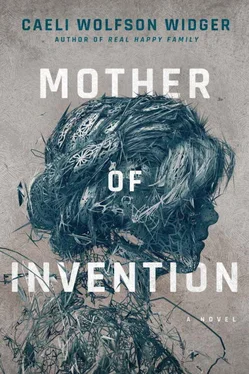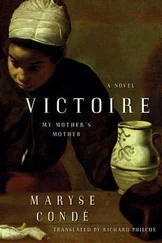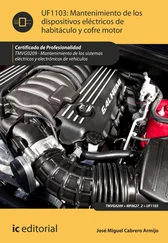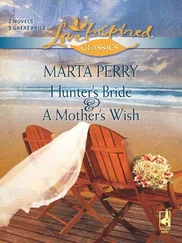Wayne turned to see the front door of the bungalow swinging open and Irene stepping onto the porch.
“Irene.” Wayne went to her and pulled her into his arms. She felt smaller and more fragile than he remembered. She rested her cheek against his chest and he felt her body relax into his.
“It’s good to see you,” he said. He tried not to betray any of the surprise he was feeling. Last he’d seen Irene, she’d appeared a robust seventy, wrinkled but straight spined, her laugh still throaty and assertive. Now she appeared closer to ninety, her face a fissured desert surface, its skin both delicate and ravaged. A new hunch rose from between her shoulders. Kyphosis, Wayne thought darkly.
“Sorry Johanna is such a flirt,” said Irene. “She’s always had a crush on you. Never mind that she’s old enough to be your mother.”
“Oh, Jo is great,” Wayne said, releasing her and moving the rockers closer together. He offered his hand. “Here, sit.”
“All I do is sit or lie down. Let me stand a minute.”
“Okay,” he said.
“You’re looking well,” he ventured.
She laughed, brittle. “Oh, don’t bullshit me, darling. What took so long? I’ve been counting the days since you left. One-eighty-six.”
“I wanted to come sooner,” he said, sitting down beside her. “Whether you missed me or not.”
“Has there been trouble?”
“No,” he said. “It’s just busy. I’m retiring soon. It’s not a simple process.”
“Retiring. So you won’t visit anymore?”
“Hard to say.” He hurried on. “How are your friends? Do you still spend time with Mia and Carly?” He’d made sure to review the streams of the permanent residents he knew Irene considered quasi friends.
“Transformed into old bats. They’ve started a cribbage group. It’s popular.” She waved a knobby hand in the air. “ Cribbage. The classic predeath game. I just can’t do it. I’ve always been a terrible strategist, anyway.”
“I think bridge is the classic,” said Wayne.
“Bridge, cribbage, whatever. The point is, I’m surrounded by geezers, Henry.”
“Henry isn’t my name,” he corrected her, gently, wincing inside. “Remember?” He disliked hearing his old aliases. He wondered if her slip was a sign of memory loss.
“Of course I remember. But it’s who you are to me.”
When he’d first approached Irene, back at her house in Texas, he’d been using Henry Duarte . Then, he’d inhabited that name completely, but since he’d moved on, the name sounded like dead words. Now— for now—he was Wayne Bridger. The knowledge that he’d soon shed that one, too, like snakeskin, rarely entered his consciousness. He didn’t allow it.
“I can’t stay long.”
“You just got here.” Her voice trembled.
“I’m sorry.”
“When are you coming back?”
He thought of his thirty-day deadline.
“Soon. Maybe a month.”
She covered her face with her hands. He rose from his rocker and stood behind her chair to rub her shoulders. Minutes passed. She quaked softly beneath his palms.
When she finally uncovered her face and twisted around to look at him, her expression had changed. She looked focused and composed, as if watching a symphony. Her rheumy eyes were dry. Calm.
“Henry,” she whispered. “I made up my mind.”
“About what?”
“I want the other option. The one you said you’d help me with.”
He felt himself shift into slow motion. A hot dread seeped through his chest, down into his gut.
“What?”
“You heard me. I need it.”
“Why?”
“I don’t want this life anymore.”
“But—it’s been years since you’ve mentioned it.”
“That’s the problem. Too many years. I want it. You say you’ll be back in a month?”
“Yes.”
“That’s soon enough. Bring it when you come. But don’t make me wait much longer. I can’t bear it.”
“Irene. Why now? After all this time? You’re—” He fumbled.
“What? Old as the hills? In the home stretch?”
“No. You’re settled. You’re in a life here.”
“This isn’t a life, Henry. You promised me a way out if I ever wanted it.”
He searched for the words. None were available.
“Just promise me,” said Irene.
“I promise.”
Now that he’d said it, there was no way out.
He lowered himself onto the wood slats of the porch and sat cross-legged beside her rocker. One of her hands dangled off the chair and he held it and gazed out into the blank afternoon. Soon her breathing coarsened with sleep. Her head hung down toward her lap. Wayne stood and smoothed the loose hanks of hair away from her face. He brushed his lips to her cheek to say goodbye.
“See you soon,” he whispered.
The plane taxied down the runway in Albuquerque. Lifted, banked, angled up into the sky. When it leveled off Wayne opened the window to the night outside. Finally, he was on the red-eye back to Boston. The route back to Viv didn’t feel as good as he’d hoped. He’d anticipated feeling freer at this moment, with the chores of his ISA presentation and Colony visit behind him. A day with Viv ahead. But he found himself dreading the reunion. Dreading the work he’d have to do in order to make his importation deadline.
He ordered a whiskey from the flight attendant. She produced a microbottle of Jameson and a plastic cup.
“Two, please, actually,” said Wayne, and she hesitated before handing over another.
Wayne unscrewed the bottle and skipped the cup. He rarely drank, but when he did, only whiskey did the job. The man seated beside him, a doughy guy in his fifties, ordered a beer and poured it into his plastic cup. Wayne watched him tip the green bottle at an angle to create an inch of foamy head, admire his pour, and take a sip.
Wayne looked away. He hated beer. It reminded him of his father, popping the tabs of his cans so hard foam spewed into the air.
He gazed out the oval window of the plane at the stars. In the distance, he saw the lights of another plane. Wasn’t that supposed to be good luck?
Or was it bad?
He watched the other plane drifting parallel, no more than a few bright blips in the night sky. He thought of the lives inside it, all the flesh and blood and memory, suspended thirty thousand feet in the air. Lives that mattered deeply to a handful of individuals, but in the grander scheme, not at all. The world was a massive, thrumming force of life. It repopulated and marched on. Its memory was pliable and forgiving.
Wayne uncapped the second Jameson. The whiskey was doing its work. Loosening the locks on the disciplined compartments of his mind.
He tapped his tablet to look at a picture of Viv. There she was: midlaugh, eyes lit up, hair all over the place.
He loved her. He hadn’t gotten to love that many things in his life.
When he closed his eyes, there on the back of his lids was Puke. His dog, another thing he’d loved.
When Wayne was eight, Puke slept with him at night, in the trailer on the Hi-Line. Ugly as puke, his father had said of the rottweiler-heeler mutt who’d wandered up to their trailer one day, dragging a stake and a chain, all ribs and mange. They’d driven him back down to the end of the road and dumped him there, but the dog kept showing up, tongue hanging from his mouth like a ribbon. Wayne had never gotten permission to keep him; he simply did, stealing ground chuck and jerky to feed him, rigging a ramp up to his bedroom window so that Puke could enter and exit the trailer without his father noticing. A benefit of living with a drunk like his father was that you could keep something like a pet dog a secret for a pretty long time. In the end, it was his sister, Bethany, who squealed. They’d been in a stupid fight, something about who’d eaten the last Little Debbie. His father swayed into the room and asked what the fuck was going on. Beth planted her hands on her hips and asked him if he knew her brother had a dog living in his room. That, in fact, the dog was in the house at that very moment . His father’s eyes had blazed with booze and when he’d said Horseshit. Prove it, Beth had suddenly panicked, a light switch flipping in a ten-year-old mind conditioned from years of vigilance, and she changed tack. Never mind, never mind, I was just kidding, it was just a dumb joke. But it was too late.
Читать дальше













